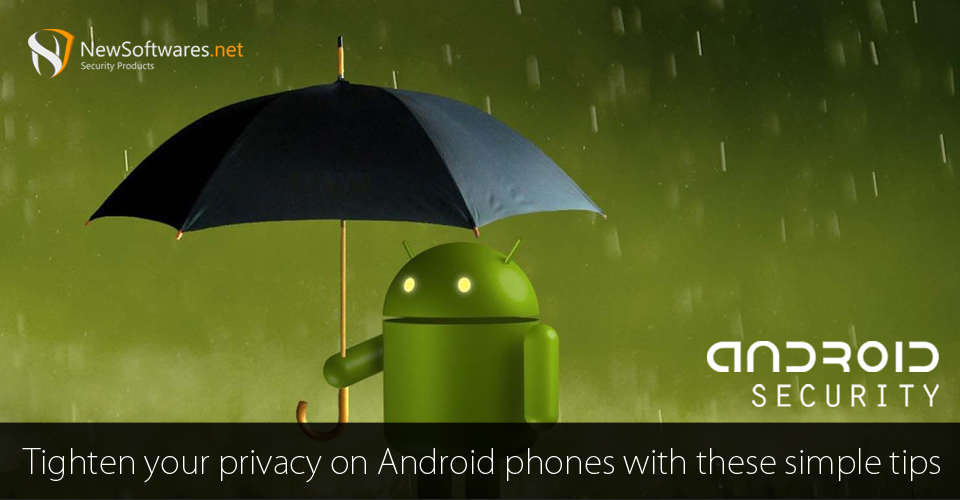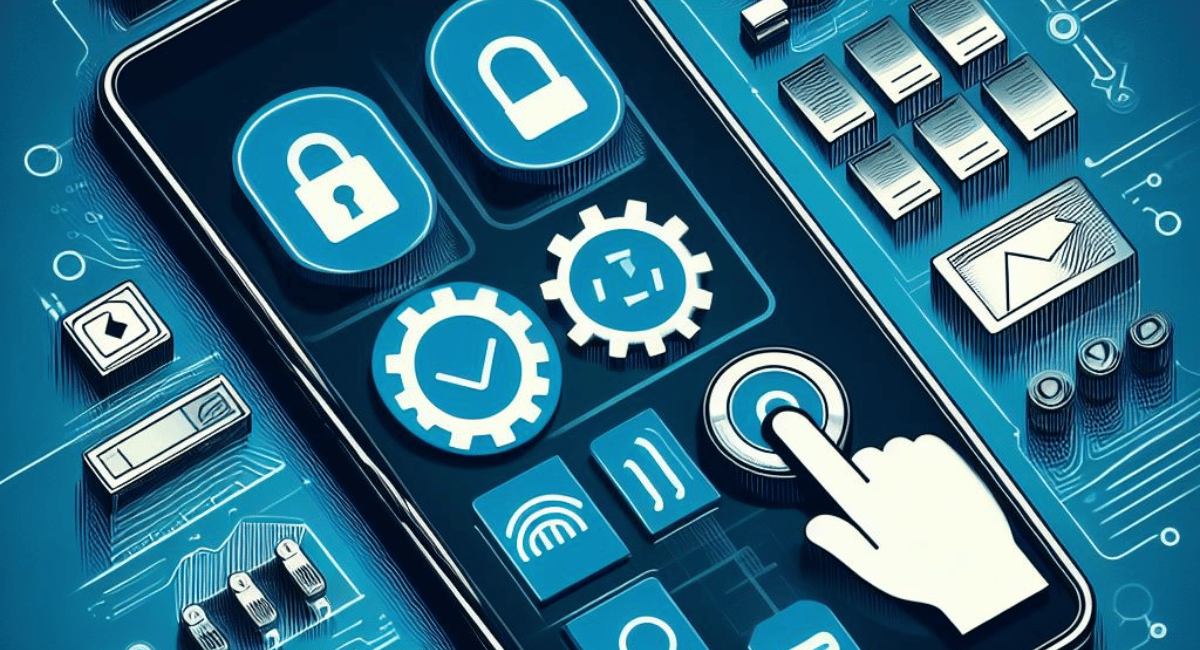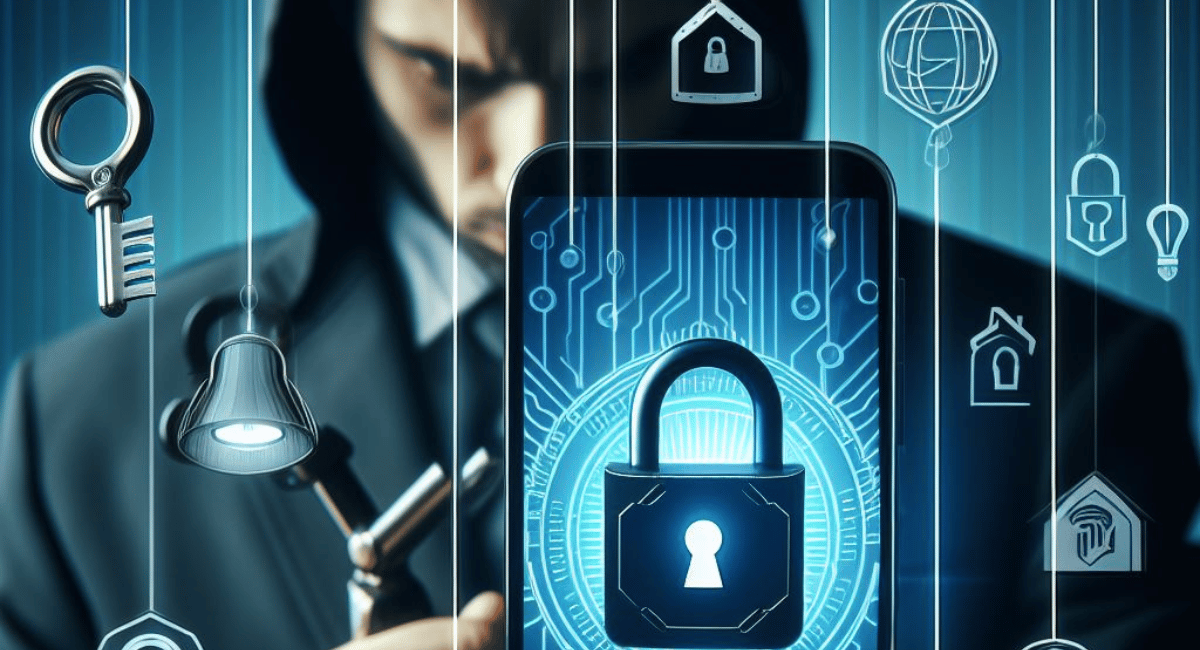Smartphones are the digital windows to our identities, thus they should be treated with utmost care and vigilance. Be it online hacking or offline hacking (such as theft of your smartphone). A lost smartphone can mean losing your contacts, your cloud data, and in worst case scenario – your identity. It could also mean all your images, videos, documents and your social media accounts could be compromised. In a nutshell, details about your private life could be available for anyone to view or buy. The digital world is full of hackers who are impossible to trace; especially if the hacker have been using tools such as Tor browser.
Don’t save passwords in your mobile browser:
Your password could easily be recovered, and if you have saved any passwords related to banking or payments, remove them at first priority. Losing your phone is bad enough, but having all your bank account emptied can be devastating.
Use Android default security features:
If you are running jelly bean on your smartphone, you can take advantage of encrypting your phone and setting up a pass-lock on it. Whether you prefer pattern, pin, password or face-lock, chances are good your data will remain safe under worst-case scenario.
Lock important apps:
Whether it’s your banking app, your cloud storage app or some other app you don’t want people to open, it’s always a great idea to lock them. Applications like app lock can password-protect your apps, preventing others from accessing them. However, avoid setting up pins or passwords that are predictable such as your date of birth, or smudges on your glass that reveal your pattern.
Lockdown photos and videos:
Perhaps one of the most sensitive pieces of information lies in our images and videos. Most people consider them extremely private – after all we record all of our life’s moments through smart phones. Thus apps like Folder Lock advanced can encrypt our images and videos, making it impossible for others to access them.
App Permissions:
Downloading an app from the play store may seem like an innocent thing to do. However, if you are not careful about reading app permission, you could have your privacy compromised. Take for example a simple flashlight app, such an app requires online permission to access your led flash. However, there are some apps which access more than they are supposed to; these apps collect user data in the background. Therefore, always read the permission thoroughly before downloading any app from the play store. Keep in mind that just because an app is on the play store, it’s not necessarily going to be safe. Another important thing to keep in mind is to read the reviews; the review can really point out if there are any security issues with the app.
Install an antivirus app:
An antivirus app can take care of most security issues when it comes to malicious apps. It can scan apps for viruses or other threats. Even if you download .APK apps from third-party stores, the antivirus software will pick out any malicious apps. One of the best rated antiviruses is Avast for Android.
Best Ways To Tighten Android Phone Security

1. Use strong passwords and two-factor authentication.
2. Enable encryption on your device.
3. Install anti-malware and anti-virus software.
4. Install a VPN to protect your data when using public Wi-Fi.
5. Use a secure lock screen.
6. Disable apps you don’t need.
7. Don’t root or jailbreak your device.
8. Disable Bluetooth and NFC when
Make Android Phone Private
There are a few steps you can take to make your Android phone more private.
1. Disable app permissions and access to your data.
2. Use a secure lock screen and encryption.
3. Limit access to your location.
4. Use a virtual private network (VPN).
5. Install a reputable antivirus app.
6. Disable data sharing and backup services.
7. Use two-factor authentication.
8. Disable Bluetooth and NFC when not
Privacy Mode On Android
There is a privacy mode on Android. This mode is designed to help protect your data and privacy by limiting the access of apps and services to your device. To enable privacy mode, go to your device’s Settings and tap on Security & location. From there, you can enable privacy mode and adjust the settings to limit access to your device.
Is Android Good For Privacy?
Yes, Android is generally considered to be a good option for privacy. Android devices are designed with a number of security features, such as encryption and two-factor authentication, to help keep your data secure. Additionally, Google Play Protect scans apps for malicious software, so you can be sure that the apps you download are safe.
Tighten A Security System
There are several steps you can take to tighten the security of your system:
1. Install and regularly update antivirus software to protect against malware, viruses, and other malicious software.
2. Use a firewall to control incoming and outgoing traffic.
3. Use strong passwords and two-factor authentication to protect your accounts.
4. Regularly patch and update software and operating systems to keep them secure.
5. Implement access controls to limit who can
Turn Off For Privacy On Android
1. Disable app permissions: Go to Settings > Apps & notifications > App permissions and turn off any permissions that you don’t need.
2. Disable location services: Go to Settings > Location and turn off location services.
3. Disable ad tracking: Go to Settings > Google > Ads and turn off the “Ad personalization” option.
4. Disable app suggestions: Go to Settings > Apps & notifications > App suggestions and turn off the “Show app suggestions”
What Are Privacy Settings?

My privacy settings are set to the highest level of privacy. I have disabled app permissions, location services, ad tracking, and app suggestions. I also regularly review my privacy settings to ensure that my data is secure.
What Apps Should You Avoid For Privacy?
It is best to avoid apps that request access to personal data, such as your contacts, location, and photos. It is also important to avoid apps that require you to sign up with your personal information, such as your email address or phone number. Additionally, it is wise to avoid apps that are known to collect user data without their knowledge.
Apps Invading Your Privacy
It is difficult to determine which apps are invading your privacy without knowing the specifics of each app. However, apps that request access to personal data, such as your contacts, location, and photos, are likely to be invading your privacy. Additionally, apps that require you to sign up with your personal information, such as your email address or phone number, may be collecting user data without your knowledge. It is important to regularly review the privacy settings of any apps you use to ensure that your data is secure
Make My Phone Impossible To Track
The best way to make your phone impossible to track is to use a virtual private network (VPN). A VPN encrypts your data and routes it through a secure server, making it impossible for anyone to track your online activity. Additionally, you should also consider using a secure browser, such as Tor, to ensure that your data is completely secure. Finally, you should also make sure that you are using a secure password for all of your accounts and regularly change it.
Importance Of Phone Privacy

Phone privacy is important because it helps protect your personal information and data from being accessed by others. By keeping your phone secure and private, you can protect yourself from identity theft, data breaches, and other malicious activities. Additionally, it can help you protect your online activity from being tracked by advertisers, hackers, and other malicious actors. Finally, it can help you ensure that your phone is only used for legitimate purposes, such as making calls, texting, and browsing the internet.
Principles Of Security
The principles of security are:
1. Confidentiality – Ensure that only authorized individuals have access to confidential information.
2. Integrity – Make sure that data is accurate and unaltered.
3. Availability – Ensure that data is accessible when needed.
4. Authentication – Confirm the identity of users.
5. Authorization – Ensure that users have access to the data and resources they are allowed to use.
Layers Of Security
The layers of security are:
1. Physical Security – Protecting physical resources such as buildings, equipment, and data centers.
2. Network Security – Securing the network infrastructure from unauthorized access.
3. Access Control – Controlling who has access to resources.
4. Application Security – Securing applications from malicious attacks.
5. Data Security – Protecting data from unauthorized access and manipulation.
6. Identity and Access Management – Managing user identities and access rights.
See More: How to use multiple social media accounts on your Smartphone without downloading their apps?
